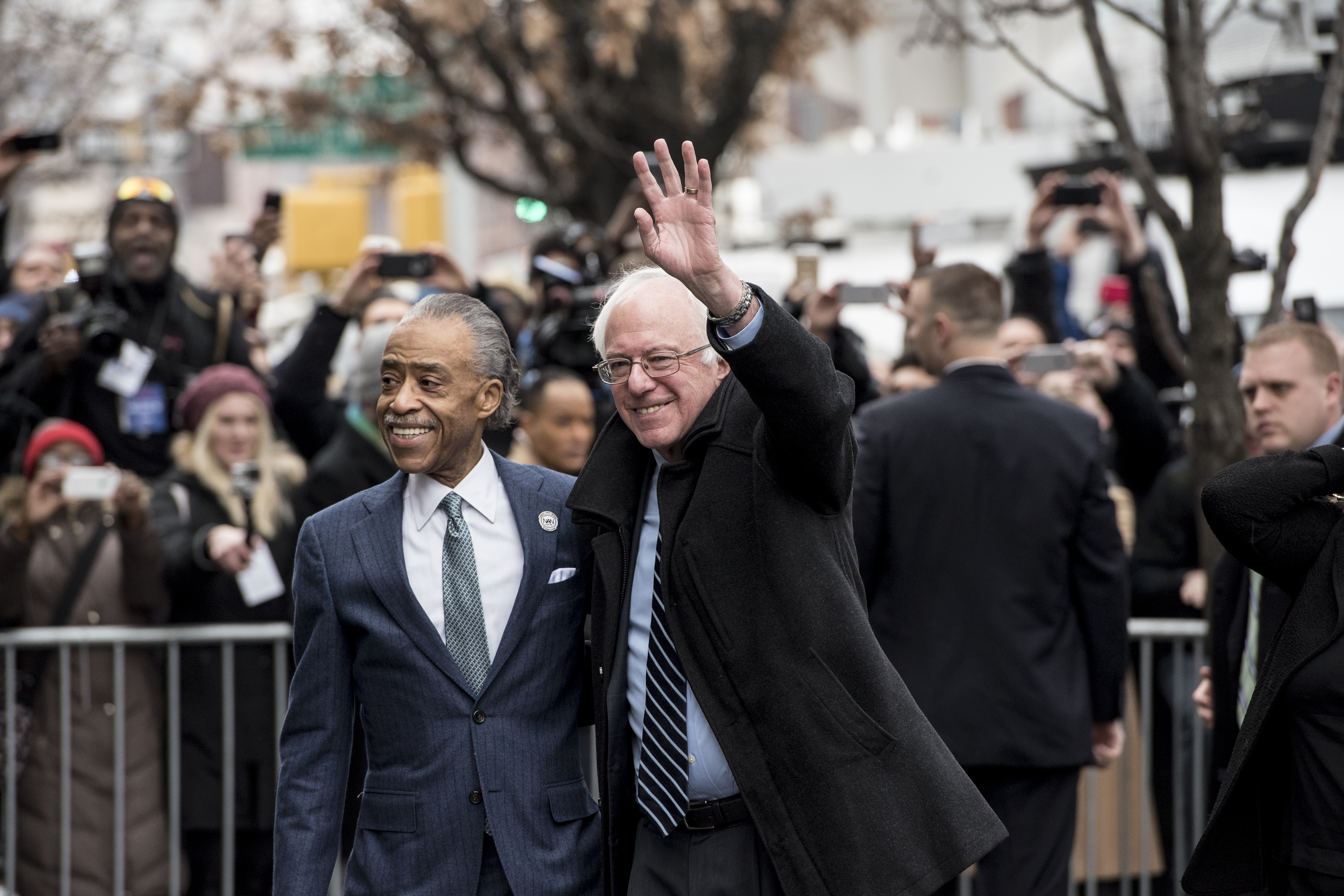Can Bernie Sanders win the black vote?
Hillary Clinton is counting on black voters to help her win in South Carolina. Bernie Sanders has other ideas.


A free daily email with the biggest news stories of the day – and the best features from TheWeek.com
You are now subscribed
Your newsletter sign-up was successful
Here's something you can count on in the next two weeks: Somebody attached to Bernie Sanders or Hillary Clinton — maybe one of the candidates themselves — will make some kind of racially tinged remark that will make people look up and say, "What did s/he just say?!" It will be followed by explanations and apologies, condemnation and outrage.
Why is this such a certainty? Because we've left behind Iowa and New Hampshire, where almost everyone is white, and are headed toward South Carolina's Feb. 27 primary (with a stop on Feb. 20 for caucuses in Nevada). South Carolina is the first state with a large number of voters from the Democratic Party's most important constituency group, African-Americans. In the last contested primary in 2008, they made up 55 percent of the Democrats who voted in the Palmetto State — and Barack Obama positively destroyed Hillary Clinton, winning 78 percent of their votes. This time it's Clinton who is counting on the state, and black voters, to put her back in command. Things are going to get tense very quickly.
Any time racial issues come up, the chances of people giving and taking offense increases. And in the pressure-filled atmosphere of the campaign, with two camps squaring off — camps that include not just candidates but their staffs, their surrogates, their endorsers, and just ordinary supporters — there are bound to be some intemperate things said, and there will be plenty of reporters around to hear them. Criticism will be flying furiously back and forth, as both sides claim that their candidate is the true friend of African-Americans and the other candidate is nothing of the sort.
The Week
Escape your echo chamber. Get the facts behind the news, plus analysis from multiple perspectives.

Sign up for The Week's Free Newsletters
From our morning news briefing to a weekly Good News Newsletter, get the best of The Week delivered directly to your inbox.
From our morning news briefing to a weekly Good News Newsletter, get the best of The Week delivered directly to your inbox.
This argument has already started. Rep. John Lewis, a hero of the civil rights movement, dismissed Sanders' oft-repeated mention of having marched with Martin Luther King in the 1960s. "I never saw him," Lewis said of Sanders. "I never met him." Lewis endorsed Clinton, and it's likely that many prominent African-American elected officials will as well. Meanwhile Michelle Alexander, author of The New Jim Crow, wrote a piece in The Nation excoriating Clinton for the crime and welfare reform bills her husband signed and their impact on African-Americans. The title of the piece was "Why Hillary Clinton Doesn't Deserve the Black Vote." You can expect to hear that argument a lot, too.
Sanders will be trying to make the case to these voters that he's the more liberal candidate and his policies would do more to help African-Americans. (He's started early with this new campaign ad, released Thursday.) The voting wars dating back to the Jim Crow era have made African-Americans as a whole a pragmatic group, less interested in lofty visions of the future than in practical concerns like who can win. It's notable that in 2008, Clinton led with African-Americans for much of the campaign leading up to the start of the voting. Despite the enticing prospect of electing the first black president, it wasn't until Barack Obama had won Iowa and demonstrated that his election was a realistic possibility that large numbers of black voters rallied behind him.
This time around, Clinton will be relying on a network of validators and important institutions within black communities in South Carolina and beyond to overcome the excitement Sanders' campaign has generated. We still don't know whether or not Sanders can turn out young African-Americans (for whom an endorsement from an older black congressman may not mean as much) in the same way he turned out young whites in Iowa and New Hampshire.
And it's Obama who could hold the key for Clinton. While he's unlikely to make an endorsement in the primaries, Clinton can say (as she often has) that Obama trusted her enough to pick her to be secretary of state. More importantly, she'll argue that her election is the only way to guarantee the continuation and fulfillment of his legacy, both in terms of the specific programs she wants to strengthen and by having the best chance to beat back the Republicans, who have promised to roll back the entire Obama era the moment they get the chance. Obama still commands almost universal support among African-Americans, and the erasure of Obama's legislative legacy could be a grim prospect for them to confront.
A free daily email with the biggest news stories of the day – and the best features from TheWeek.com
We're sure to see a detailed and interesting debate about how African-Americans fared under the last two Democratic presidents, and what they want and expect from the next one. But we're also all but guaranteed to see occasional bursts of harsh rhetoric and a whole lot of hurt feelings.
The Democratic race is about to reach a whole new level of intensity.
Paul Waldman is a senior writer with The American Prospect magazine and a blogger for The Washington Post. His writing has appeared in dozens of newspapers, magazines, and web sites, and he is the author or co-author of four books on media and politics.
